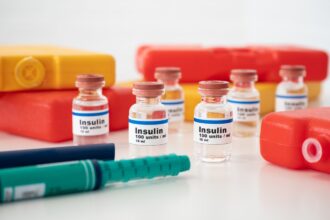This September an event will take place in New York that could define the world’s agenda for the coming decade. I refer, of course, to the high-level meeting of the United Nations General Assembly on the prevention and control of non-communicable diseases (NCDs). It takes place in New York on September 19 and 20.
This September an event will take place in New York that could define the world’s agenda for the coming decade. I refer, of course, to the high-level meeting of the United Nations General Assembly on the prevention and control of non-communicable diseases (NCDs). It takes place in New York on September 19 and 20.
Traditionally, health concerns of the international community and of the UN have largely been limited to sudden surges in communicable disease epidemics – such as HIV/AIDS or avian flu – to health situations following natural disasters and conflicts, and to chronic problems such as malnutrition, caused by inadequate access to development.
The non-communicable disease challenge is different from all of these. To some degree, it is taking centre-stage because hitherto poor societies are becoming richer, urbanizing faster, adopting sedentary lifestyles and new food habits.
Take diabetes – one of the NCDs the UN meeting will be focused on and potentially among the biggest dangers to the world’s well-being and economic prosperity in the first half of the 21st century. As a recent study in Lancet established, the population of diabetics on our planet has doubled in 30 years. In 1980, the number was 153 million. Today it has crossed 350 million.
Diabetes is linked to a whole host of other health issues – obesity, heart disease, renal failure, weakening eyesight. Today, 10 per cent of the world’s adults have diabetes. Forty per cent of those with diabetes live in China and India, the fastest-growing major economies.
Appropriate diet and exercise can prevent or delay the onset of Type 2 diabetes, but many diabetics don’t realize until it’s too late. The potential for drugs is enormous. According to a 2010 report by Pharmaceutical Research and Manufacturers of America (PhRMA), “America’s pharmaceutical research and biotechnology companies are working on 235 new medicines to treat diabetes and related conditions. All of the medicines … are either in clinical trials or awaiting approval by the US Food and Drug Administration.”
There are other responses. In New Delhi and Beijing, retail stores are flooded with everything from biscuits to ice-creams that are labeled “Safe for diabetics”. Almost out of nothing at all, a new diabetes economy has sprung up in the past five or 10 years.
It may appear that diabetes affects rich, white-collar folk, the sort who can afford to buy sugar-free ice-cream and are too lazy or busy to walk or exercise. This is not quite true. The bulk of the diabetes problem is in developing countries. Inadequately tackled, it can nullify economic advance at a national level and push families back into poverty at a household level.
As far back as 2007, a World Bank paper estimated, “Studies have revealed that 30-40 per cent of household income is spent on costs of care for one diabetes patient in poor families.” These figures were quoted for the Middle East-North Africa region, but they are as true in South Asia or Africa or the ASEAN area. For instance, in Jakarta, the capital of Indonesia, one in eight residents in diabetic.
Diabetes is only one of a set of NCDs – cardiovascular diseases and tobacco-induced ailments among them – that will be discussed at the UN meeting. Yet it symbolizes all that can go wrong with the world’s economic hopes and aspirations in the coming years. That is why this global meeting in New York is so important in shaping the world’s health agenda for the coming decade.
By Ashok Malik
Ashok Malik is a journalist writing primarily on public policy. Ashok is based in Delhi India and his columns and articles have appeared in several newspapers over the last 20 years.





